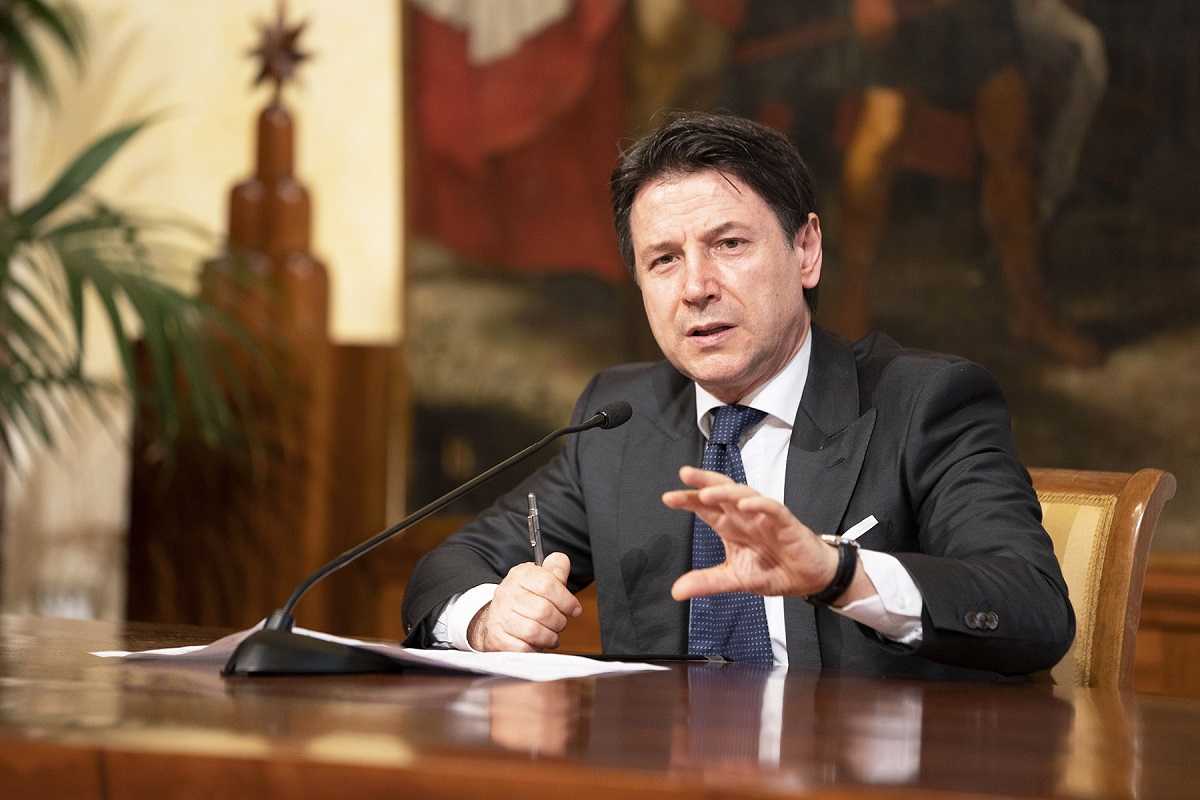“The decision on whether to use the European Stability Mechanism (ESM) is, and remains, an Italian one. But we didn’t create it to leave it unutilised.” Thus spoke German chancellor Angela Merkel as her country began its semester at the rotating presidency of the European Union. To which prime minister Giuseppe Conte replied, rather coldly: “I respect Angela Merkel’s opinion, but I am the one who does the maths.”
Mrs. Merkel hinted that Italy should accept the ESM loan – amounting to roughly €36 billion intended for health spending – to counter the economic downturn caused by the coronavirus pandemic. Back in Italy, however, the political battle over accepting this loan is nothing short of bloody.
The interest rate for the ESM fund are far more convenient than standard Italian state bond yields, as economists have calculated that using the fund would save the country €4.8 billion. Italy, the first European country to bear the brunt of the coronavirus pandemic, could well use the cash – considering its debt could soon rise to 160% of its GDP.
Therefore, the “maths” Mr. Conte mentioned may well be less about economics, and more about politics. The ESM has been an option since a few months ago, yet the leader has been deferring the decision. That’s because before deciding, he must deal with his government, which is strongly divided on the issue and risks an irreparable fracture.
In the lower chamber of Parliament, MPs opposing the ESM outnumber those who want to accept it by 361 against 227. The two biggest parties, which form an uneasy coalition government, hold opposite views and don’t seem willing to mediate.
The Five Star Movement – the biggest party in the current coalition government – plus the League and Brothers of Italy – both major right-wing opposition parties – are firmly refusing the fund’s activation, dubbing it a “trap” of Brussels’s making and implying that accepting it would impair Italian sovereignty. These parties have all dabbled in an intermittent Euroscepticism in the past.
On the other side of the fence are Five Star’s governing partners, the Democratic Party, plus a few minor parties and Silvio Berlusconi’s own Forza Italia (go Italy), which usually sides with the other two opposition parties as members of the same centre-right alliance. They argue that it would be in Italy’s best economical interest to accept the fund and are generally more favourable towards the EU.
The campaign against the ESM was sparked by opposition leader Matteo Salvini just last November, even though he himself had agreed to Italy’s participation in the mechanism during his time in government just last year. Mr. Salvini, along with Brothers of Italy’s Giorgia Meloni and Five Star’s Luigi Di Maio, maintains that the conditions that come with the ESM may transform in a chokehold on the economy and a Brussels-mandated diktat.
Faced with this impasse, Mr. Conte has been deferring the decision for weeks, while trying not to lean too much towards either side in order to avoid painful pressure within the frail coalition government. However, his indecisiveness certainly doesn’t help in diminishing the simmering tensions.
If the parties’ positions do not change, sooner or later Mr. Conte will take a decision, the consequences of which could be dramatic. One of the parties could decide to pull the plug from the coalition and trigger fresh elections come September – which, incidentally, is exactly what Mr. Salvini and his centre-right allies are hoping for. If this were the case, the Italian political landscape would undergo a striking transformation, according to the most recent polls on voting intentions.
The Five Star, who enjoyed 32% of consensus in 2018, would most likely be reduced to less than half. The Democratic Party would possibly gain a few points. But a centre-right coalition, which is currently riding high on consensus, would easily grow to a relative or absolute majority, and the three right-wing leaders would them build themselves a highway to governing.
Therefore, Mr. Conte is knowingly handling political dynamite. Part of the reason his government exists is to prevent the likes of Mr. Salvini and his allies to getting into power. But the Five Star and the Democratic Party, which were bitter rivals until not so long ago, are maintaining the government alive through an odd alliance: the ESM conflict may well be the straw that breaks the camel’s back.








